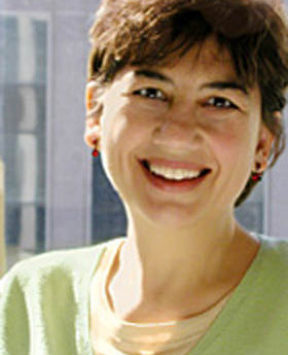Nostradamus – hot! Pokemon – not! At the dawn of a new year, its time to look back and assess the coolness factor of not-so-current events and national fascina-tions and relegate them to either the pile of meaningful incidents or yesterdays fads. How better to calculate what piques the worldwide interest than to analyze what millions of Web searchers search for throughout the year?
In its unique position of the worlds most popular Internet search engine, Google.com has cataloged and scrutinized the almost 55 billion searches launched from their site. Theyve now published their Google.com Zeitgeist Timeline of the most popular search terms for Year 2001. It offers a unique window into what is happening in the world on any given day, as well as a fascinating retrospective on the peaks and valleys of popular culture.
For example, as a reflection that more people than just the FBI were searching for missing government intern Chandry Levy, Googles Timeline shows a huge spike in search queries for Chandra in mid-July.
From the predictable to the odd, Google searches for Carol Brady maiden name coincide with the East and West coast airing of the million dollar question on Who Wants To Be A Millionaire? last April.
Ever wonder what is the most popular search term was for the year? If you guessed sex, youd be way off. Nostradamus was the number one overall search term and, ironically, the most misspelled query.
Google.coms David Krane, Director of Corporate Communications, gave us 10 minutes for 10 questions on the popular gainers and decliners, how they wrangle the Internets 3 billion Web documents and whats so hot about Google.
Q: What is a Zeitgeist?
Krane: Zeitgeist is a German word that means spirit or the age of an era – kind of the moral and cultural climate of a particular period of time. Essentially it means Google has spent the last 12 months analyzing search patterns that appear when our users enter various words into the Google search engine.
Q: I can think of a few popular search terms like that Harry Potter or Bin Laden character. What are some of the other terms people were searching for over the past year?
Krane: More than half of the searches Google receives every month are unique, meaning they happen only once in a period of 30 days. So the Google Zeitgeist reflects some obvious categories of searches: Sept. 11th, celebrities, sporting events. But it also reflects a few surprises and anomalies that popped in there because theyre unique searches we didnt see repeating month after month.
The Zeitgeist had heavy footprints from Sept. 11-related traffic. Nostradamus was the top rated search term for the entire year in two categories, both in the Top Gainers and in the Top Ten Men Search for at Google.
Q: Thats amazing, considering how long hes been dead.
Krane: Number two on the Top Ten Men list was Osama bin Laden, followed closely by Eminem. You can see the diversity clicking in right away.
Q: What were some of the most declining search terms – ones that were popular in 2000 but have declined in 2001?
Krane: Thankfully one of my favorites to decline was Big Brother. Some of these reality-based TV shows have lost their appeal. Some others that declined that were interesting to me were the mp3 file-sharing sites like Napster and Gnutella. These are losing momentum, as their future is more questionable
Q: Or perhaps people found out they could type Napster in the address bar and go right to the site.
Krane: Another one that declined that I found to be interesting was the query WAP, which stands for Wireless Application Protocol. This is the technology whereby users can look at Web pages using their cellular phone. It had received quite a lot of hype and promise and it was greeted with a very mixed response, especially in the U.S. So weve seen WAP tail off.
Q: Tell us the story on Google. Is it a true search engine?
Krane: Google is indeed a true search engine. It is the worlds most popular search engine, ranked number one in usage popularity by a number of third-party sources. Weve been in business for about three years. We offer a version of our search engine in almost 70 different languages. It really is a global product. We currently power more than 150 million searches per day around the world.
Q: I saw Google gives access to about 3 billion Web documents.
Krane: Yes, two million Web pages, more than 300 million different images using our Google Image Search service, and about 700 million Usenet discussion messages. This Usenet search is a 20-year archive of Usenet conversations and can serve as a powerful reference tool, while offering insight into the history and culture of the Internet.
Q: What I like about Google is you cache a lot of information so when you can no longer access the Web site for any reason, you can go to Google and still see the site. How does that work?
Krane: We essentially keep a cache copy of every Web page that we visit on a regular basis. We keep a copy of it for a period of about 30 days. As we revisit that page, we refresh with a new copy of it. Its not a historical archive like the Wayback machine (www.archive.org).
Q: Google is also very unique in its presentation. What is the philosophy behind its simplicity?
Krane: The real gestalt here is not putting any barriers that restrict our users to getting the information theyre looking for as quickly as possible. The usability, speed and simplicity are really our three top priorities here at Google. The home page does not contain advertising. The home page is 12 kilobytes in size. Its often described as very emaciated and anorexic. The back end of Google is very, very fast. We return most of our searches in less than half a second. To search our collection of 3 billion documents by hand, it would take 5,707 years, searching twenty-four hours per day, at one minute per document. With Google, it takes less than a second.
Q: Put your futurist hat on and tell us what Google will look like in a few years.
Krane: Our focus is to take all the public information in the world – everything we can get our arms around – organize it, and make it universally accessible and useful to people that access the Internet in any language, using any platform or any device.
Were going to really explore other Internet platforms. For example, we recently built a voice-activated version of Google using voice recognition technology. A component of that technology involved a partnership with BMW. Future versions of luxury BMW automobiles will include Internet access using Google to browse the net. Another big initiative are these new emerging wireless platforms. In Japan, for example, there is a wireless phone called iMode. Its a mobile phone with color screens, faster bandwidth and little web browsers. So one can be walking down the road or on the subway and browse the Web. We created a version of Google that runs on the iMode phone and we receive tens of thousands of searches per day from Japanese iMode users.
Q: Finally, what exactly is the definition of Google?
Krane: The way we spell the word is actually a misspelling of a mathematical term: G-o-o-g-o-l, which is ten to the one hundred. Its a very, very large number.
A full audio interview with Google.com can be heard at: www.webtalkguys.com. The Google Zeitgeist Timeline for 2001 is at: www.google.com/press/zeitgeist2001.html.
Dana Greenlee writes about technology every Friday in the Index.
More Stories From This Author
Democrats in Washington Legislature reveal sweeping new tax plan
It cobbles together a range of hikes, including on businesses, capital gains and property
FEMA denies funds to WA for damage caused by 2024 ‘bomb cyclone’
Gov. Bob Ferguson says federal funds are needed to address $34 million in damage caused by the storm, and that the state will appeal.
SAVE Act could disenfranchise millions of voters
Congressman reports law could cost Washingtonians over $361 million just to register to vote.






